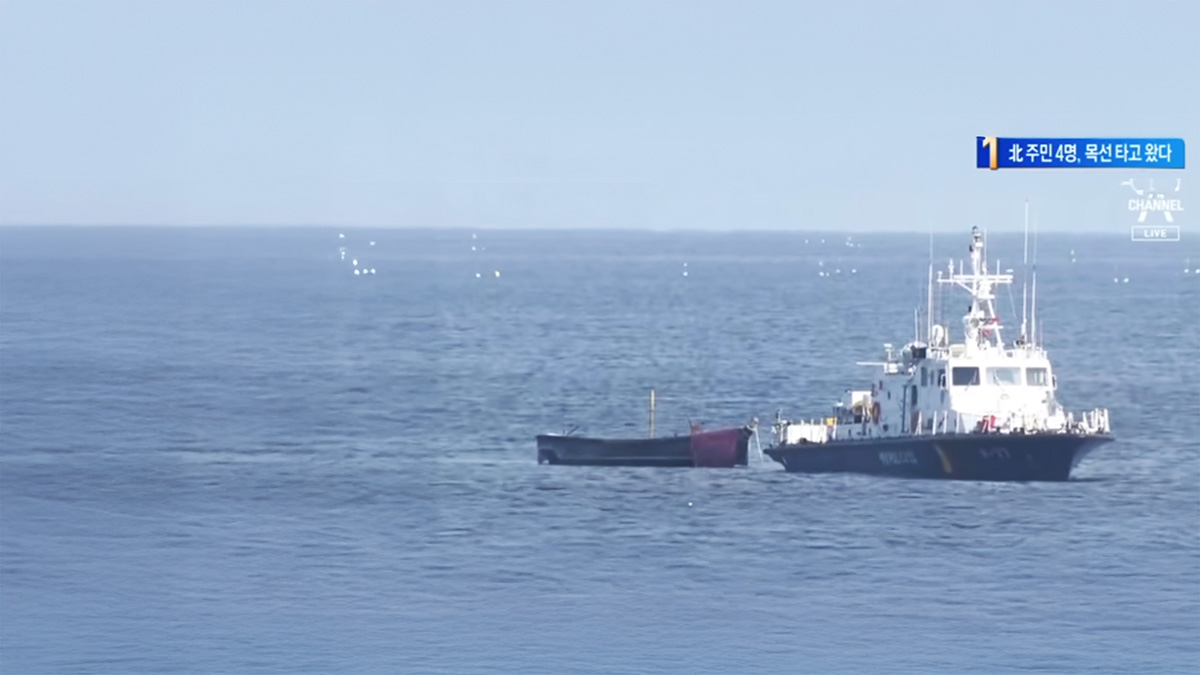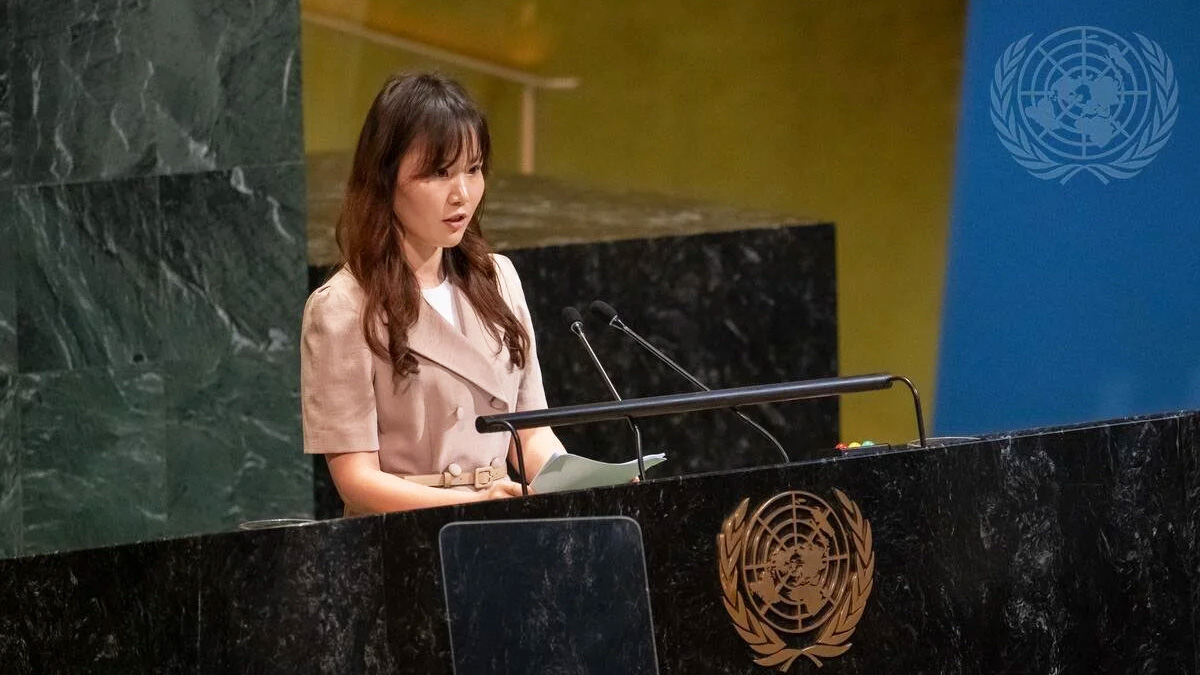Time Travelers: North Korean Defectors Resettling in South Korea
To reach freedom, North Korean defectors typically brave a perilous 3,000 mile journey through China and Southeast Asia. But even after finally reaching safety, they face a long road ahead as they begin their new lives.
The majority of North Korean refugees have resettled in South Korea. Many describe the transition like stepping out of a time machine, 50 years into the future. In addition to learning about things like the internet and ATMs, getting used to their newfound freedom alone can be a lot to grasp after decades of living in the world’s most authoritarian country.
A new journey, one of restoration, discovery, and adjustment, begins.

Resettlement Process
When North Korean refugees first reach South Korea, they go through a thorough debrief process with the National Intelligence Service to verify their background. From there, the Hanawon Settlement Support Center helps them ease into modern South Korean society.
Every defector must complete a three month adjustment program, which covers:
- Basic skills, like how to open a bank account and use the Internet
- Job and vocational training
- Field trips to shops, food courts, and other businesses
- The social and cultural differences between North and South Korea
- The history of the Korean peninsula
After completing the program, refugees receive government benefits to begin their new lives, including an initial subsidy, housing support, and healthcare.

South Korean Culture Shock
Emerging from Hanawon, North Korean refugees often experience culture shock when they find themselves fully immersed in South Korean society.
One of the first things many notice is the abundance of greenery and trees compared to North Korea. While the entire Korean peninsula was severely deforested by the mid-20th century, South Korea is one of the world’s few reforestation success stories.
Many defectors are also surprised by how safe South Korea is. One person can manage a big market stall on their own and not worry about theft, whereas goods have to be closely guarded at North Korea’s Jangmadangs. Other new experiences include the widespread availability of clothing and existence of vending machines and mannequins.
.jpg)
New Challenges
While the South Korean government provides material support, many North Korean refugees still face challenges starting over in a very different society. Just navigating daily life can be difficult at first, and making longer-term decisions like what to study or finding a stable job can be even more overwhelming.
“When I first arrived in South Korea, I was confused and didn’t know where to even start my new life in freedom. I wasn’t even sure who I was as a person.”
– Geumju, escaped North Korea in 2008

At school, additional study may be needed to catch up with their South Korean peers after decades of propaganda-based learning. In the workforce, many refugees have to retrain and re-qualify for the same jobs they had in the North, such as doctors and teachers. These discrepancies have contributed to an income gap between North and South Koreans in South Korea’s hyper competitive society.
In addition to figuring out the future, many refugees are still coping with physical and mental health issues from a traumatic past. A lack of healthcare in North Korea often results in decades of unaddressed medical and dental problems. Roughly 50% of North Korean refugees also suffer from PTSD. Many had to leave loved ones behind, witnessed or experienced torture, or survived trafficking, which can be tough to process.

Finding Community & Onward
Forming new relationships in South Korea can be one of the biggest challenges for defectors. In North Korea, lack of mobility and aspects of life organized by the regime meant that everyone in a neighborhood knew each other. To meet up with someone, it was commonplace to just stop by their home. In comparison, South Korea’s decentralized “yaksok” (promise) culture of scheduling a time and place to meet specific people may feel unfamiliar and take extra effort.
Refugees may also not want to reveal that they’re from North Korea or can have trouble sharing past experiences. Some may also experience prejudice against North Koreans for their accent or stereotypes, such as being uneducated or untrustworthy.
Overall, although life in freedom brings many advantages and benefits, it comes with some unexpected challenges. Before their escape, North Koreans may have only heard good things or focused on the positives. Moving to a foreign place and building a new life from scratch is difficult for anyone, and can be especially challenging for North Korean refugees.
Impact of the Pandemic
During the pandemic, refugee numbers have been at an all time low. Unprecedented restrictions on movement and surveillance have made the journey through China and Southeast Asia almost impossible.

On the resettlement side, refugees have also struggled as some support programs were scaled back or cut altogether. Many have felt especially lonely during this time or found it difficult to work towards their goals.
Agents of Change
Despite all odds, North Korean refugees are some of the most powerful examples of human resilience. When they have the support they need to successfully resettle in freedom, they can become some of the most effective agents of change on this issue.

Defectors are embracing and taking pride in their identity, sharing their stories on the global stage as YouTubers, entrepreneurs, and advocates. When they reclaim the narrative on North Koreans, they directly challenge the regime’s portrayal of their country.
North Korean refugees also have the unique opportunity to affect change inside North Korea through remittances. Many maintain contact with their home communities and send money back to their families, helping people inside and accelerating change at the ground level.
The Support of a Movement
Reaching freedom is just the first step. LiNK is dedicated to working with North Korean refugees to help build their capacity and realize their full potential in their new lives! We do this by:
- Organizing workshops for entrepreneurship, advocacy, and more
- Facilitating a 1:1 English tutoring program
- Sponsoring scholarships for North Korean students pursuing higher education
- Providing a community of ongoing support and resources

“I’m touched by LiNK’s supporters. I can feel their genuine heart. Before I learned more about LiNK, I just thought that I came out through a rescue network. I never imagined that so many people have been rooting for us and that it’s a bigger movement than just rescues. Now that I know all of you helped us with kind hearts, I want to succeed and do good things for others in South Korea.”
– Yuna, escaped through LiNK’s networks and resettled in 2021
We’re only able to provide this crucial support with your help. Donate today to keep these programs running.
A North Korean Refugee’s Daring Escape By Boat | Gyuri Kang’s Story
Escaping from inside North Korea remains almost impossible today. Borders remain sealed by the legacy of pandemic-era restrictions, while surveillance in China continues to intensify. But in 2023, a group of North Koreans crossed into South Korean waters on a small fishing boat—a rare and extraordinary way to reach freedom. Abroad the vessel was 22-year-old Gyuri Kang with her mother and aunt.

You were never supposed to know my name, see my face, or hear my story. Because I was one of 26 million lives hidden inside North Korea.
I was born in the North Korean capital, Pyongyang. The first time the government decided my future without my consent, I was only a child. My family was exiled to a rural fishing village because of my grandmother’s religion.
In the system we were living in, not even your beliefs or thoughts are truly your own.
On my way to school, youth league officers would inspect my clothes and belongings, punishing me for even a hairpin or a skirt that was a few centimeters too short. At school, we were taught that “we live in the most dignified nation in the world,” but outside those walls, people were collapsing from hunger in the streets.
Careless words overheard by a neighbor could turn into a knock at the door in the middle of the night. The radio played government broadcasts all day long, and searching other frequencies was a risk no one dared to take. This is how the North Korean government maintains control over people. By convincing you that survival depends on submission.

I returned to Pyongyang as an adult. I majored in table tennis at the Pyongyang University of Physical Education and imagined myself making a new life, built on talent and hard work.
But reality was nothing like what I had dreamed. I came to understand a deep, painful truth: In the end, everything was determined by how well you obeyed, not how hard you worked.
Frustration and emptiness built up until I finally decided to leave Pyongyang.
I wanted to help support my mother and aunt, so I moved to the coast to try and build a life of my own. My mother used all of her hard-earned life savings to buy me a small wooden fishing boat so I could start a business harvesting clams.
That boat was more than a way to make a living. It was a daily reminder of her sacrifice, and the depth of their love and trust in me. If the money I earned with my own hands could put even one less wrinkle on her forehead, that was enough for me.

As a boatowner, I woke up early in the mornings to prepare supplies, get the crew together, and encourage them. I inspected the condition of the boat and hired people to help fix the engine and other faulty parts. Although I couldn’t go out to sea because I’m a woman, I was responsible for ensuring the ship operated smoothly.
But the harder I worked, the more government officials came to me—demanding baskets of clams and money. They justified their demands by saying: “The Party orders it,” threatening to punish anyone who refused. Every night I agonized over how to protect my people and keep my business going, and how I should respond. In those moments, I would remember the love and devotion my mother and aunt had poured into me and it gave me strength to persevere.
To escape my reality, at night I secretly watched South Korean TV shows on a television that was smuggled in from China.
My world turned upside down. With my friends who were also watching South Korean media, we would cautiously express our dissatisfaction together while also copying the hairstyles and outfits we saw in dramas. Sometimes, we would even try to mimic South Korean words or accents when talking or texting together.
But under Kim Jong Un, punishments became much more severe. Two people I knew were executed for watching and sharing foreign media. Our lives became harder, control over young people became more intense, and our resentment began to grow.

But no matter how much they tried to repress us, frustrated young people like me continued watching forbidden content as a way to forget reality. Foreign media has quietly found its way into North Korea for decades. As I grew up, it began spreading more than ever before, through USBs passed between friends or broadcasts picked up on illegal devices.
Many defectors, like me, can remember the exact episode of a TV show, a specific South Korean song, or even a traffic report, that planted the first seeds of doubt.
Of course, dramas and movies don’t tell the whole story, but they show a life that contradicts everything we were taught. And it makes you wonder: if life is so different out there, why does it have to be this way here?
I realized it doesn’t just show people that different lives exist. It gives them the belief that their life could be different. And that belief gives people the courage to choose a different future.
The thing about information is once you learn something, you cannot unlearn it. I remember watching people on my screen speak freely, laugh openly, and pursue their dreams—things that were unimaginable in North Korea. For the first time, I wondered if everything we were taught might be wrong. That doubt led to questions, and my curiosity became too strong to ignore. Now that I had seen the truth, I could never go back to the person I was before.

Escaping North Korea cannot be explained by the simple word “leaving.” This was especially true for me because I escaped together with my mom and my aunt. They had placed their trust in me when they gave me money for that boat. And now I was placing my trust in that boat to carry us across the sea to freedom.
I planned our escape in complete secrecy.
I bought a smuggled GPS device from China, carefully traced our route, observed the currents and tides, learned the patrol schedules of the guard boats, and figured out the blind spots of the coastal guard posts. I meticulously checked the condition of the boat and quietly prepared all the food and supplies we would need. I trained my body for the wind and the waves, and my mind for the terror of being caught.
Some nights I woke up in a panic. Other times my confidence crumbled and I thought, maybe I should give up and just accept the life I have. But in those moments, I imagined what waited at the end of the journey.
I wasn’t leaving just to stay alive. I was leaving so that I could live like a human being.
On the night we left, we climbed into my boat and pushed off into the dark water. I gripped the rudder and let the current carry us south, carefully navigating around the guard posts and patrol boats who were on the water looking for people like us.

I knew what would happen if we were caught. Arrest. Endless investigations. Humiliation. Public trials. Political prison camp. And the possibility that I might lose the people I loved most in the world.
My mother and aunt were trembling with fear. I had to hide my own fear to tell them what I could only hope. We will survive. We spent the night being tossed back and forth on the East Sea. Black waves lifted our boat like a toy before smashing it down again. Every crash sent water over the sides and threatened to swallow us up.
Suddenly, a patrol ship appeared. Its lights stabbed the water, blinding us, and started coming closer and closer. It was coming for us. My chest pounded so hard I felt it might burst. I thought of the sleeping pills we had brought.
We had agreed that if capture became inevitable, we would rather take our own lives. It was a fate we preferred to execution or prison camps. As the coast guard closed in, I wondered, is it time for the pills?
But I refused to give in. We were so close. I steered away from the searchlights, surrendered the boat to the churning water, and pushed on forward.
Suddenly, the patrol vessel stopped and turned back around. They could no longer chase us. We had reached the maritime border. The sea calmed, as if it was welcoming us to freedom. And as the sun rose, we saw the outline of land.
A South Korean fisherman, hearing radio reports that North Korean patrols were in pursuit, realized we were the boat being chased. He steered his boat toward us and said, "Welcome. You are safe now."

It’s been almost two years since we arrived in South Korea.
I still remember moving into our apartment and using a showerhead for the first time, experiencing hot water flowing straight from the tap. I couldn’t believe it. That day, my mother, my aunt and I took turns showering, laughing, and saying to each other, “So this is what a human life feels like.”
For the first time in my life, I could choose my studies, my job, my clothes, my hobbies—even the way I spoke—for myself. It felt like an entirely new world. We were being reborn, leaving behind a past of silence and control for a life with dignity and a future we could choose ourselves.
My mother began studying for a professional certification. And my aunt enrolled in social welfare classes to help others. I studied hard and was recently accepted into Ewha University. I have also been active in North Korean human rights activism and I even started a YouTube channel to show the world what it looks like to start a new life in South Korea.

Hope is dangerous for the North Korean government. Millions of people live with anger and sadness, but even more live in resignation. Most do not realize their rights are being violated—they don’t know what “rights” are. I once believed it was normal for the state to control every part of our lives. I thought every country lived this way.
But the moment you realize life could be different, hope begins to take root. And once hope exists, change is no longer unimaginable.
My dream is that someday North Korea will be a place where young people choose their own paths, where no one is punished for their words, and where every person lives as the true owner of their life. While so much of North Korea’s reality is dark, change is already happening. And what sparks that change is information. A single truth from the outside world, a glimpse of what life could be, can plant a seed of doubt, or ignite a spark of hope.
That’s why I speak out. If I don’t tell my story, who will tell it for me? If I stay silent, will the death of my friends, and the suffering and starvation my family endured be forgotten?
Right now, in North Korea, there is someone just like me—sitting in a dark room, secretly watching a South Korean broadcast, quietly wondering: Could I also live like that?
I want my story to prove that this hope can become a reality. I want to stand in the middle of that change. Not just as someone who escaped to enjoy freedom, but as someone determined to one day share that freedom with all North Korean people.
Freedom is not given, but it is something we can achieve. With your support, we can write a future where all North Korean people are free.
Foreign media gave Gyuri a glimpse of the outside world—and the courage to seek freedom.
Increasing North Korean people’s access to outside information is one of the most effective levers for change in the country. And that is exactly what we’re doing at Liberty in North Korea
In partnership with North Korean defectors and engineers, LiNK develops tailor-made technology, tools, and content that help people inside the country access more information more safely. These glimpses into the wider world build people’s resilience to the regime’s propaganda, and emboldens them to imagine a different future for themselves and their country.
Help fuel work that’s directly supporting North Koreans driving change on the inside.




